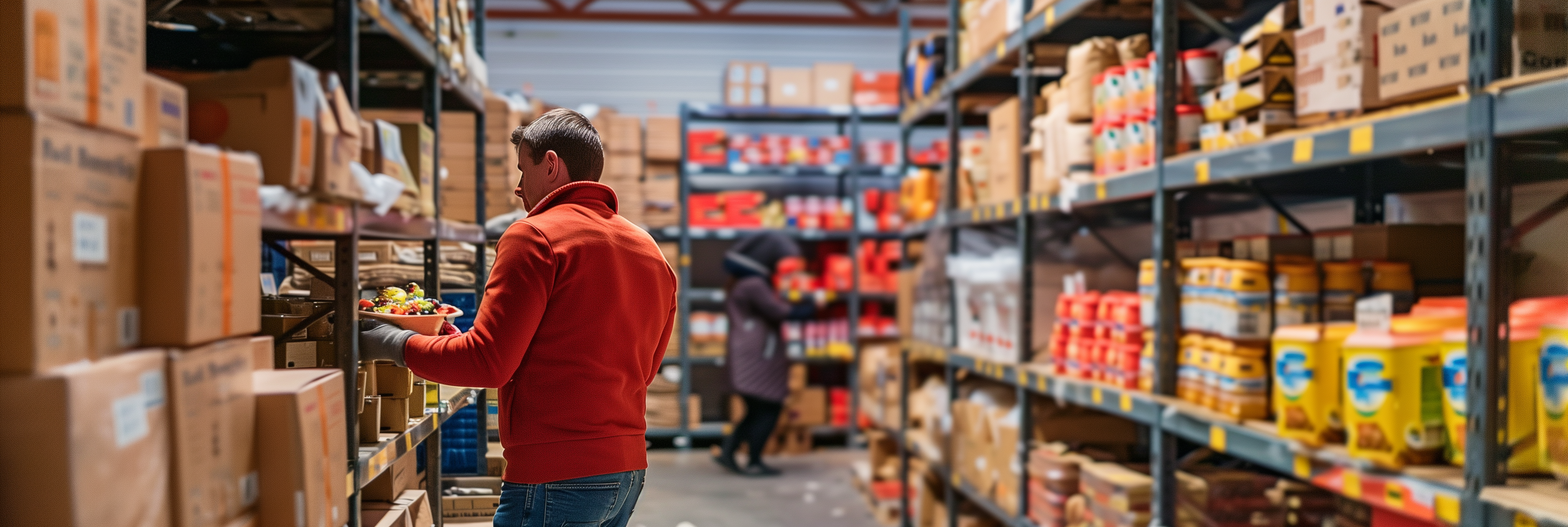
Prepping on a Budget: Affordable Tips for UK Households
Prepping on a Budget: Affordable Tips for UK Households
In an era where uncertainties ranging from geopolitical threats to economic fragility are becoming more pronounced, the concept of 'prepping' – preparing for emergencies – is gaining traction in the UK. However, a common misconception is that prepping requires significant financial investment. This article aims to dispel this myth, offering practical, budget-friendly tips for UK households looking to prepare for emergencies without breaking the bank.
- Understanding the Need for Prepping
Prepping is about being prepared for unexpected situations, such as power outages, natural disasters, or economic crises. The UK is not immune to such events; for instance, the country experienced over 1,300 flooding events between 1998 and 2018, according to the Environment Agency. In the UK, prepping was historically regarded as more of an American phenomenon, resulting from general fear or paranoia, however perspectives are now changing here too. Many people now recognise the wisdom of prepping and appreciate the fact that preparedness is not about fear; it's about responsibility.
- Starting with a Plan
The foundation of effective prepping is a solid plan. Assess potential risks specific to your area, like flooding or power outages, and consider your family's unique needs. The UK Government’s 'Preparing for Emergencies' guide emphasises the importance of understanding local risks.
- Budgeting for Emergencies
Allocate a small portion of your monthly budget to emergency preparedness. Even as little as £10-£20 a month can make a significant difference over time. Rather alarmingly, a 2019 survey revealed that 68% of UK adults do not have any form of emergency funds, highlighting the need for better financial preparedness.
- Building an Emergency Food Supply
Start by gradually adding a few non-perishable items to your shopping list each week, focusing on sales and bulk purchases. Items like canned goods, dried beans, rice, and pasta are affordable and have a long shelf life. Look out for discounts and deals at local supermarkets and bulk stores to stock up on emergency food supplies cost-effectively. For a comprehensive list of recommended long-life foods available at your local supermarkets, just visit 50 Long-life Foods to Stockpile.
- Water Storage Solutions
Storing water is essential, but doesn’t have to be expensive. Reuse large soda bottles or other food-safe containers to store tap water. Remember to replace stored water every six months.
- Affordable Emergency Kits
You can assemble an emergency kit on a budget by including basic items like a torch, batteries, a first-aid kit, and a multi-tool. Many of these items can be found at pound stores or during sales. Customize your emergency kit to your family’s needs instead of buying pre-made kits which can be more expensive.
- Learning Skills and Knowledge
Skills such as basic first aid, CPR, and emergency response tactics are invaluable and often free to learn. In fact, in emergencies, skills can be more valuable than physical supplies. Check out free courses offered by organisations like St. John Ambulance or the British Red Cross.
In the UK, depending on where you live, there may also an abundance of natural food that is available if you have the know-how. For advice on foraging we suggest you visit our Foraging Guides.
- Energy and Heating Alternatives
Consider budget-friendly ways to heat your home in a power outage, such as using a wood stove or portable gas heaters. Safely using candles and blankets can also provide warmth and light. Insulate your home to conserve heat - simple measures like draft excluders can be inexpensive yet effective.
- Growing Your Own Food
Start a small vegetable garden to supplement your food supply. Even a window box with herbs or a balcony with tomato plants can yield a helpful amount of food. If you're interested, we suggest you might like to read further articles for advice at Growing and Preserving your own Food.
- Staying Informed for Free
Stay informed about local and national emergencies by signing up for free alerts from services like the Met Office or Flood Information Service. Knowledge is a key component of preparedness.
- Networking with Community
Engaging with your community can be a source of shared resources and support. Local community groups often have tools and resources that can be shared among members in times of need. Remember that your neighbours can be your biggest asset in a crisis, especially if you are a vulnerable person.
- Prepping for Health on a Budget
For medical supplies, consider generic brands of medication, which are often more affordable. Also, keep an eye out for sales on first aid supplies.
- Affordable Mental Health Preparedness
Maintaining mental well-being is also crucial in emergencies. Access free resources such as mindfulness apps, or community support groups to bolster your mental health. According to Mind, the mental health charity, currently one in four people in the UK experience a mental health problem during any particular year.
- Learning from Others
Read books, blogs, and guides on prepping. Many resources are available for free online or at local libraries. Learning from the experiences of seasoned preppers can be invaluable. For a suggested reading list just visit Ten Books every Prepper should Read.
Final Thoughts
Preparing for emergencies does not have to be a costly affair. With strategic planning, budget-friendly purchases, and a focus on acquiring knowledge and skills, UK households can effectively prep for a range of emergencies. Remember, the key to successful prepping is not about spending a lot of money but about making smart, informed choices that prioritize the safety and well-being of you and your loved ones. By taking small, consistent steps, you can build a comprehensive and cost-effective preparedness plan that brings peace of mind and a sense of security.
Suggested Articles
Emergency Food for Low-Income Individuals: Access and Affordability in Times of Crisis
During times of crisis, securing basic necessities becomes a challenge, with food security becoming an urgent concern...
How might Climate Change harm our our society?
The potential impact of climate change is one that has gained increasing attention and urgency in recent years - in f...
Prepping for Emergencies with Children: A Comprehensive Guide for UK Families
How to Keep Your Family Safe, Informed, and Ready for Any Emergency Introduction Emergencies can happen at any time, ...




